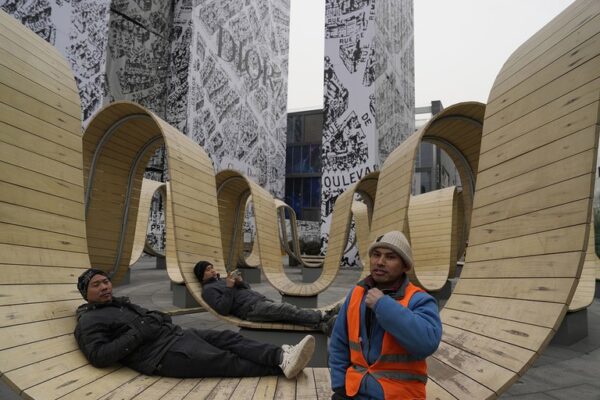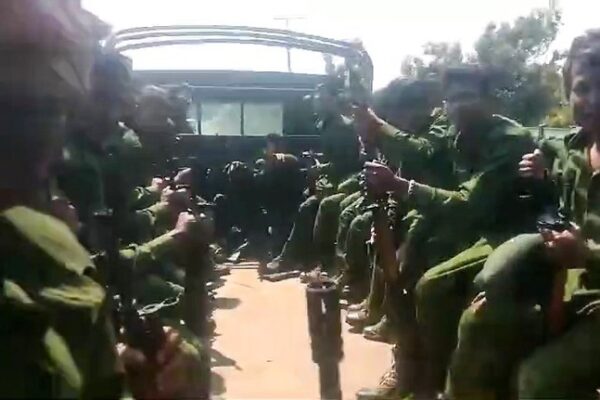
China’s stability maintenance system kicks into high gear on ‘sensitive dates’
On dates considered politically sensitive by the ruling Chinese Communist Party, police and local officials across China call up or visit anyone they think might cause some kind of trouble for the authorities, and take steps to silence or control them. On “sensitive dates” such as June 4, the date of the 1989 Tiananmen killings, authorities target independent journalists, rights activists and lawyers, anyone with a grievance against the government, people who complain and petition the authorities, and anyone with a track record of posting online content that the government doesn’t like. Meanwhile, an army of internet censors, many of whom work for private service providers, keeps a list of metaphors, code words, homophones and other workarounds to help them block and delete unwanted content. They are putting into practice China’s “stability maintenance” system, designed to nip social unrest in the bud. Security personnel walk outside the Great Hall of the People after the second plenary session of the 14th National People’s Congress in Beijing on March 8, 2024. (Jade Gao/AFP) Blogger and former police detective Deng Haiyan, who uses the online handle “Second Uncle,” said the police are trying to get ahead of any potential unrest, and nip it in the bud. “Every time there is a major celebration or festival, they want to make sure nothing untoward happens,” Deng said. “They assume that certain people will take the opportunity to cause trouble at a time like that.” “Once trouble starts, it spreads very easily, so they want to lock it down beforehand.” Former Sina Weibo censor Liu Lipeng said online service providers must keep a calendar of “sensitive dates” and be aware of certain keywords and workarounds that internet users may employ to evade censorship. “As a service provider, you have to have a manual to avoid getting into trouble,” he said. “Sensitive dates” include major political meetings like the National People’s Congress that ran in Beijing from March 5-11. ‘Picking quarrels and stirring up trouble’ Fu Yuxia, who is pursuing a complaint against the government through official petitioning channels, hails from a small town outside Lianyungang city in the eastern province of Jiangsu. She was detained by police in her hometown of Niushan in late February on charges of “picking quarrels and stirring up trouble.” The reason? Fu had bought a rail ticket to visit her parents in Xuzhou, an action that was flagged by the stability maintenance system ahead of the Beijing parliamentary sessions. “They’re afraid that I’ll go to Beijing during the National People’s Congress, so they have detained me in a rescue facility, with people from my local police station on guard outside, round the clock,” Fu told RFA Mandarin from detention. “They keep coming to check that I’m still in my room,” she said, adding that police had also questioned her and taken her fingerprints, warning that she would be jailed if she made plans to travel to Beijing. A petitioner holds photos of evidence in her grievance against local officials, outside a government petition office in Beijing on March 2, 2016, a few days before the National People’s Congress opens its annual session. (Greg Baker/AFP) Calls to the Niushan police department rang unanswered during office hours one day ahead of the National People’s Congress’ opening session. Hangzhou-based freelance writer Zan Aizong also had his liberty restricted during the parliamentary sessions by police in his home city of Hangzhou, who kept coming to his apartment to check up on him. He complained in an online statement: “What do the parliamentary sessions have to do with me? I’m not a delegate to the National People’s Congress or the Chinese People’s Political Consultative Conference.” Zan couldn’t see why he was being targeted, as he isn’t someone who is pursuing a grievance, nor a member of a persecuted group. “I’m just a writer and a not-very-famous online commentator,” he said. “Is it necessary to waste so much manpower and material resources? Is it necessary to maintain stability in this way?” Zan wanted to know. Placed under guard Meanwhile, state security police in Beijing were placing a guard outside the home of independent political journalist Gao Yu, according to her social media account. “How are Beijingers supposed to live a normal life?” Gao said in a Feb. 27 post to her X account, calling the surveillance “unbearable.” Gao said national security police repeatedly called her phone and turned up at her home in a bid to prevent her from meeting a dissident who was believed to be in Beijing. Similar protocols are typically put in place every five years ahead of the Communist Party’s national congress, dissidents and activists have told RFA. Petitioners and dissidents have told RFA Mandarin that they are also placed under guard, detention or house arrest up to two weeks ahead of China’s National Day, when the ruling Chinese Communist Party marks the founding of the People’s Republic of China by late supreme leader Mao Zedong on Oct. 1, 1949. Veteran Chinese journalist Gao Yu works at her desk in her home in Beijing on March 31, 2016. (Greg Baker/AFP) Qing Ming, the tomb-sweeping festival, can also be a political minefield for the authorities, because people often use it to commemorate high-profile dissidents like Liu Xiaobo and ousted former leaders like Zhao Ziyang. Every April 5, police across the country are out in force to stop people from visiting the former homes and graves of people regarded as politically “sensitive” by the government. In 2021, Geng He, wife of disappeared rights lawyer Gao Zhisheng, vowed to make offerings every year outside the Chinese Consulate in San Francisco on Qing Ming, because she can only assume her husband has died. “I don’t have any dreams now. I only hope that the Chinese Communist Party (CCP) can return Gao Zhisheng’s ashes to me for humanitarian reasons.” “I now have a premonition that is getting stronger and stronger, which is that Gao Zhisheng has been persecuted to death,” she said in a public statement. “Otherwise,…




